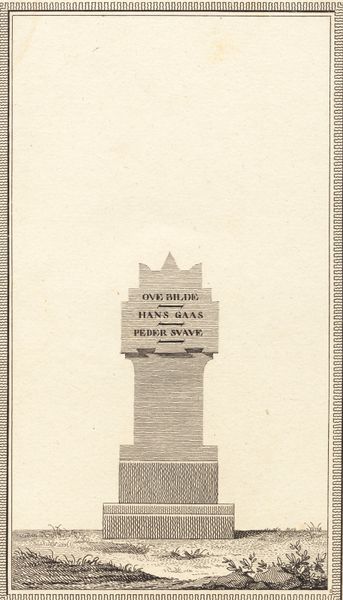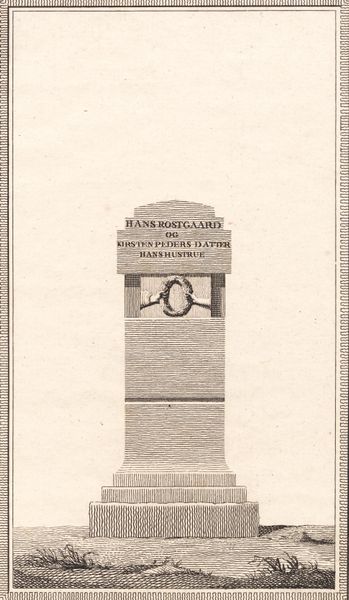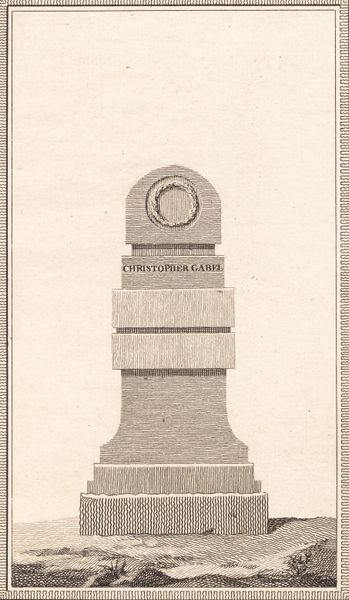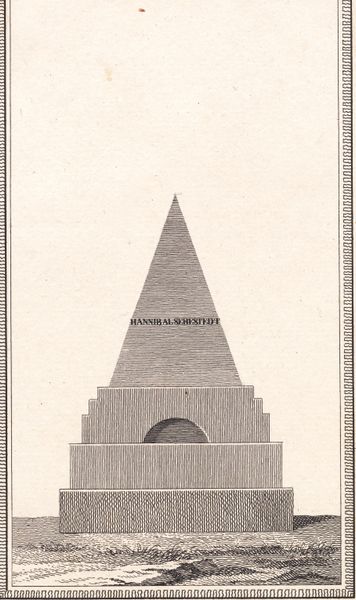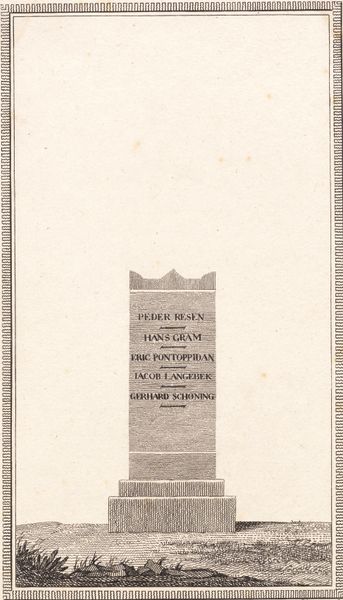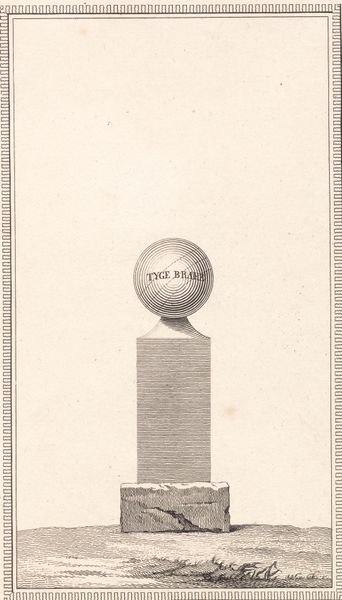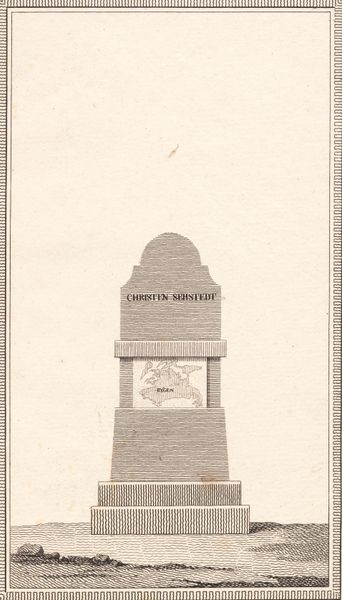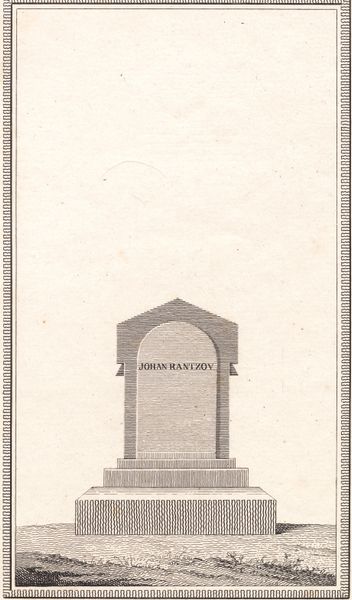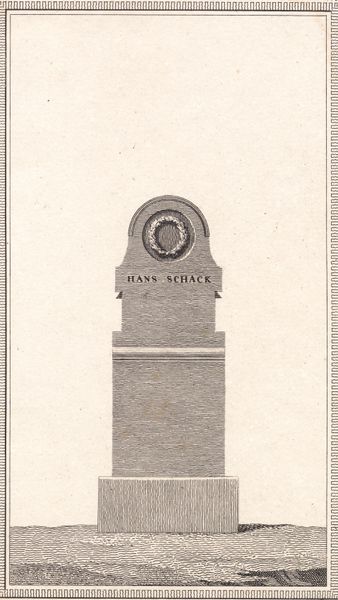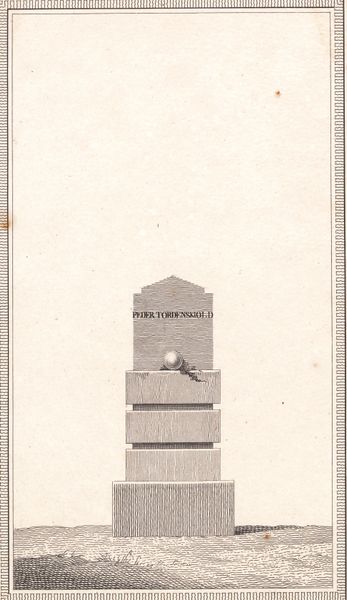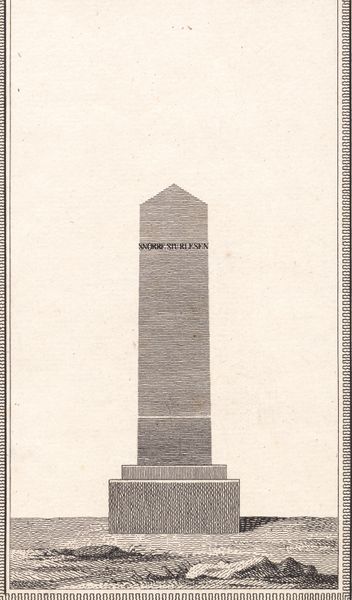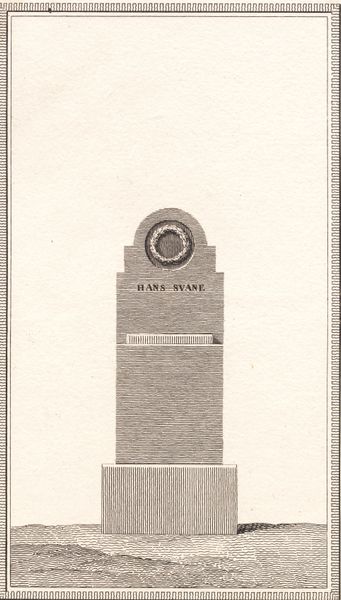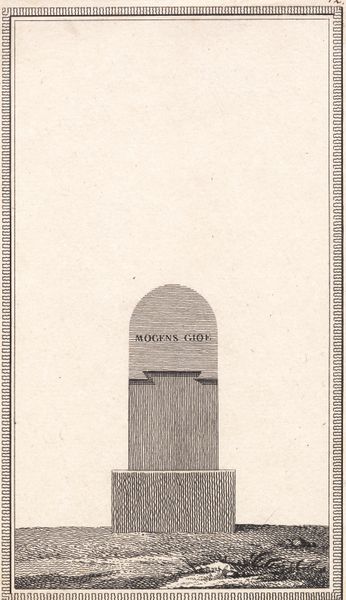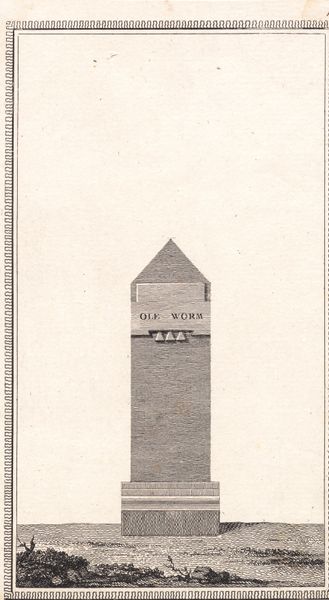
print, etching, engraving
#
portrait
#
neoclacissism
# print
#
etching
#
line
#
history-painting
#
academic-art
#
engraving
Dimensions: 179 mm (height) x 102 mm (width) (billedmaal)
Editor: This etching by J.F. Clemens, titled "Ludvig Holberg," dates back to between 1779 and 1781. It's a rather austere, neoclassical portrait. The simplicity of the memorial feels quite solemn. What do you make of it? Curator: Austere is a good word for it, wouldn't you say? Almost…aggressively simple. Clemens strips away so much. Holberg's name, the stone – it's like reducing a life to its barest essence. You almost feel a sense of … humor, perhaps? An intellectual joke only Holberg himself might fully appreciate? It reminds me of epitaphs. Does it spark any stories in your mind? Editor: I hadn't thought of it as humorous, more reverent, but I see what you mean. The plainness makes a statement. It's definitely trying to immortalize Holberg, to enshrine him in a classical style. Was this type of memorial common at the time? Curator: It certainly taps into the Neoclassical obsession with antiquity, a desire to find timeless ideals. What I wonder is if it comments on mortality and meaning through the art of less being more. Maybe it suggests the fleeting nature of worldly achievements, and perhaps finds humor in it? Editor: So, the print becomes more than just a portrait of a man but rather a comment on legacy? Curator: Precisely! It's not merely remembering Ludvig Holberg but examining what remains once a name fades into history. I wonder, are we still talking about him today *because* of stark reminders like these, I wonder? Editor: That gives me a fresh perspective on appreciating not just the aesthetic, but the conceptual layer as well. Curator: Absolutely. Art is more than a visual feast.
Comments
No comments
Be the first to comment and join the conversation on the ultimate creative platform.
